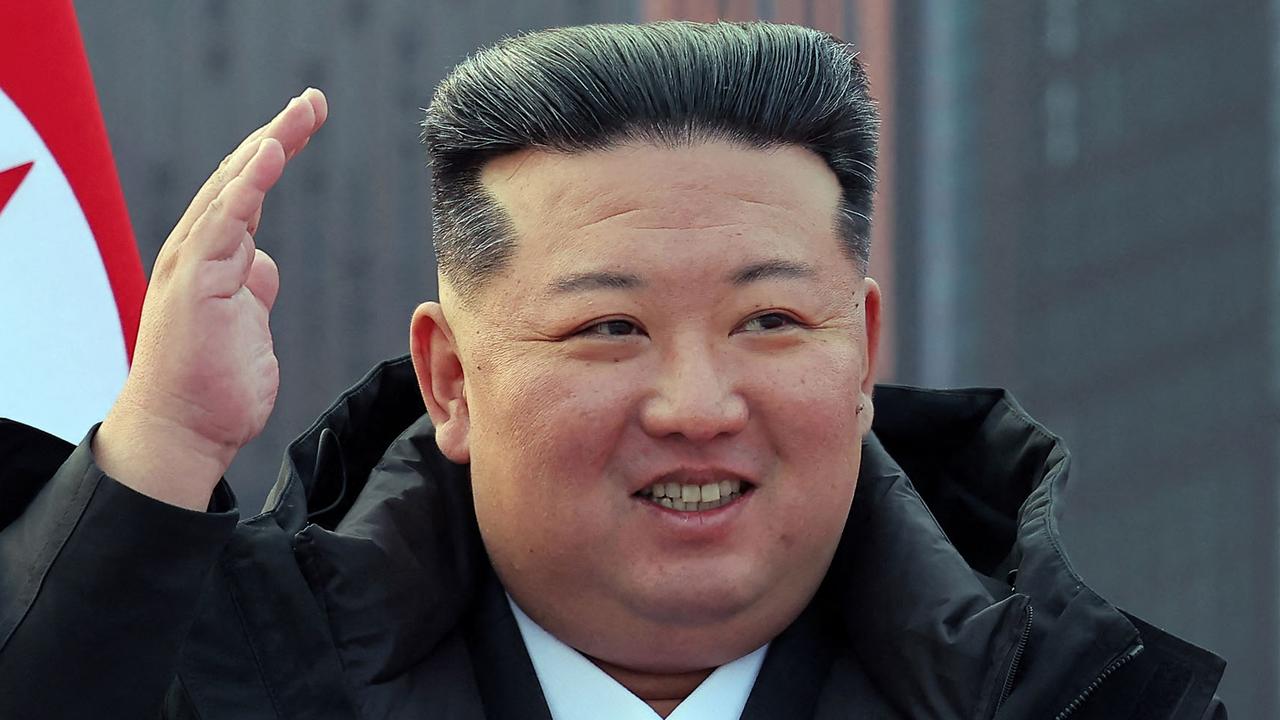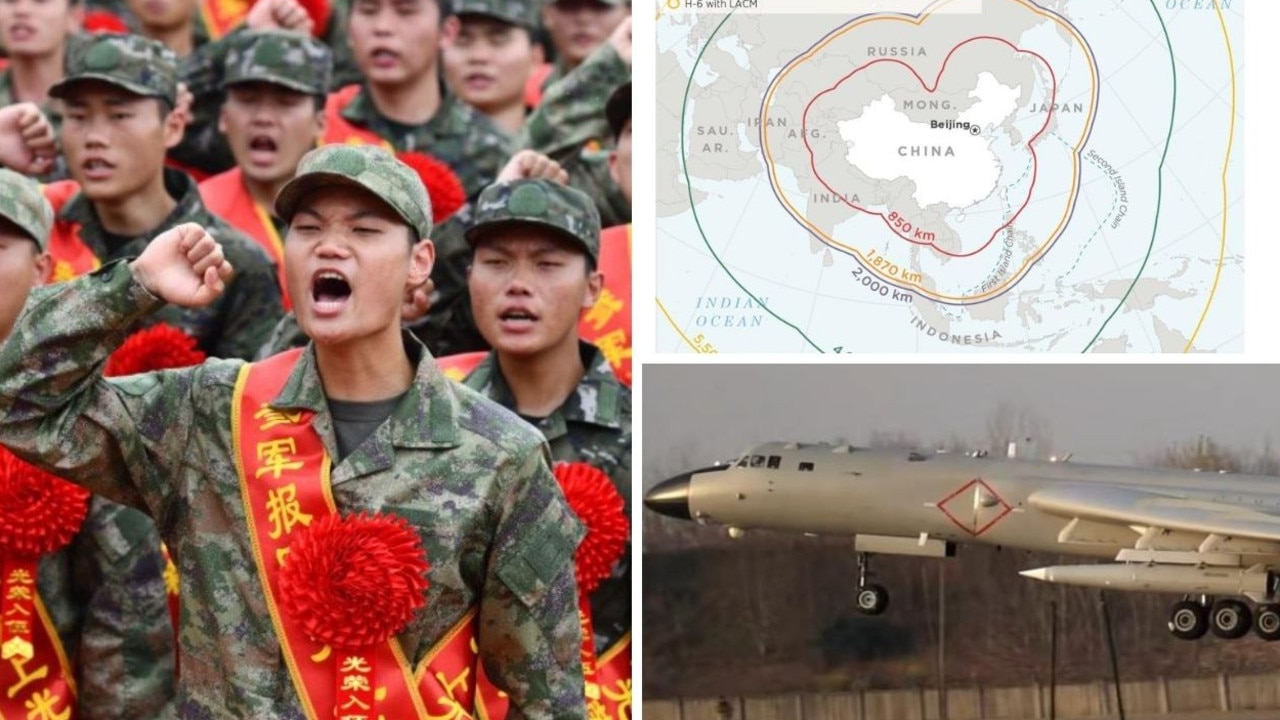Russian students urged to donate vapes to help nation’s military effort
A strange propaganda-style poster has emerged from a Russian university as students go to extraordinary lengths to help Putin’s war effort.

Most universities around the world post flyers encouraging a healthy lifestyle and warning of the dangers of addiction.
But at Russia’s University of Samara, students are being urged to do something a little different.
A wacky propaganda-style poster featuring a disposable vape has emerged from the campus, seemingly encouraging young people to combine their vaping habit with patriotism.
The poster repurposes a classic Soviet-era anti-drinking campaign but replaces a glass of vodka with an e-cigarette, accompanied by the slogan “1 e-cigarette = 1 drone attack on the enemy!”
The flyer, posted on Russian social network VKontakte, provides another glimpse of the measures pro-military groups are taking to support the “special military campaign” raging in Ukraine.
According to Ivan Stupak, a former officer in the Security Service of Ukraine, Russian artillery stockpiles are “totally depleted” after almost two years of relentless conflict south of the border.
“For the last five months or so, Russia has very actively been using old-style artillery. Not late-Soviet era, but mid-50s and mid-60s — D30 and the D20-type of towed artillery, with a maximum range of around 9 to 11 miles,” Mr Stupak said in a recent interview with Newsweek.
“They are using this artillery because they have no other options.”
So where exactly do the vapes come in?
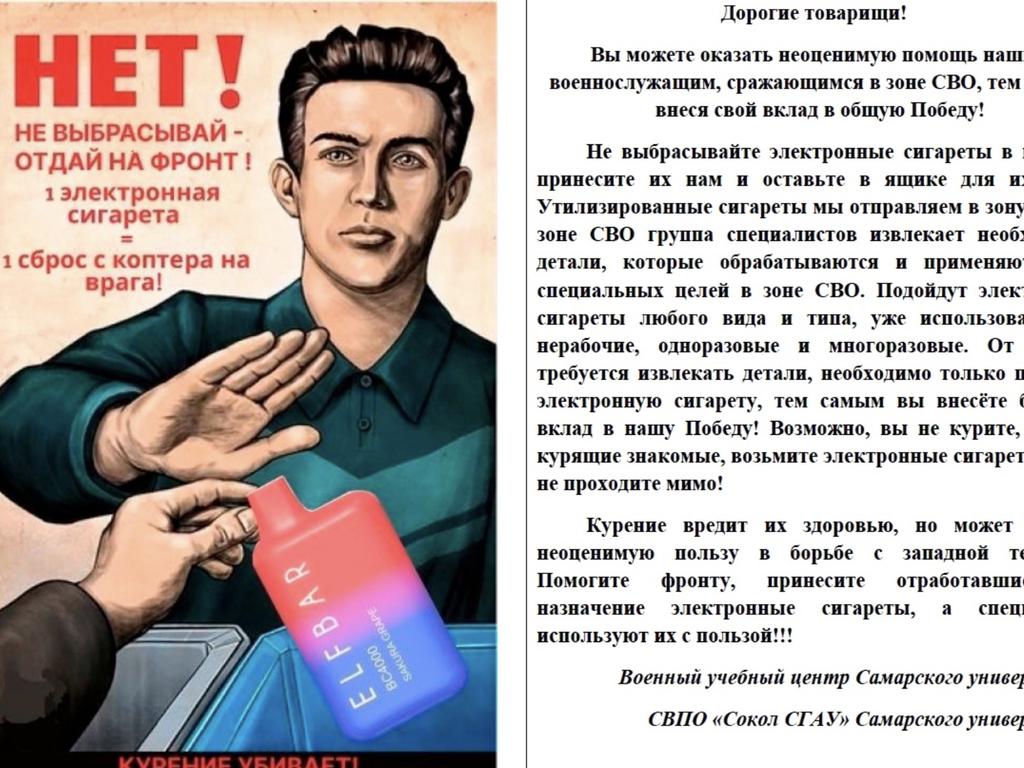
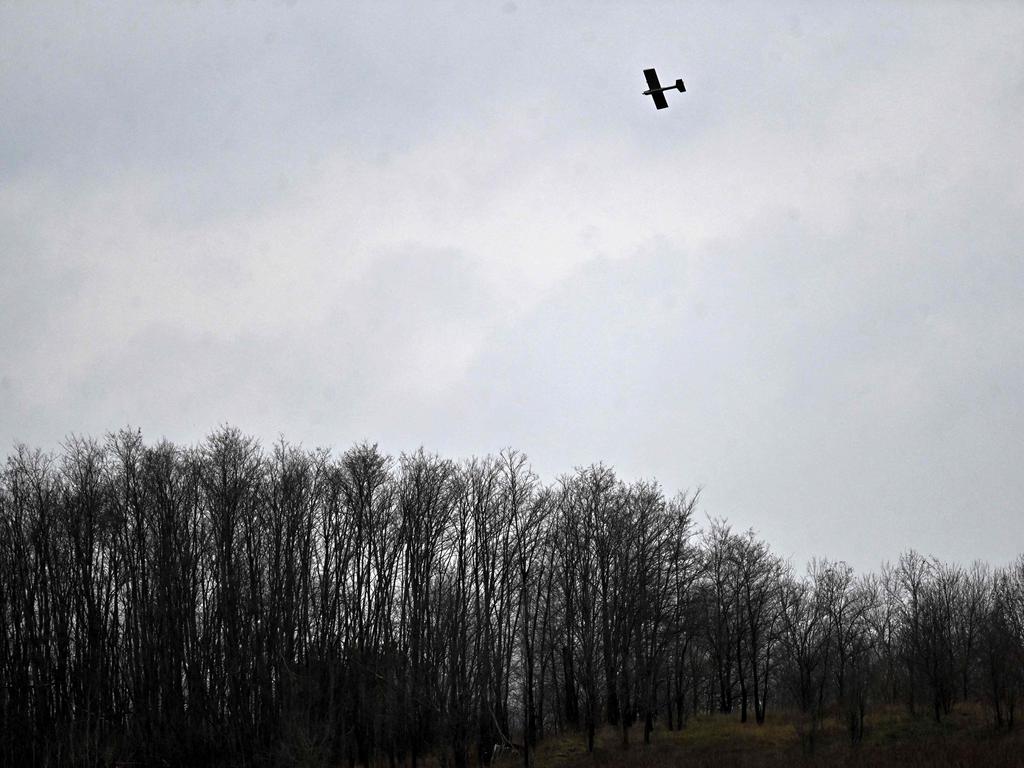
Components inside the wildly popular devices have now been found to be useful in crafting drones. The sensor inside the device is reportedly able to be repurposed and placed inside a remote-controlled bomb.
Volunteers at the university’s “Falcon patriotic military club” have been identified as the group posting flyers and collection bins in recent weeks.
“Thanks to all those who responded and helped the front. 224 used electronic cigarettes were collected and sent to the SVO zone. This is the contribution of electronic cigarette smokers to our Victory!” volunteers posted to VKontakte.
“The campaign to collect electronic cigarettes continues. Collection boxes are located in all academic buildings and residence halls on the north and south campus. Be active. The front needs our help!!! Collect and bring used electronic cigarettes.”
Ukrainian students have also found creative ways to repurpose parts to assist their nation’s war effort.
Ukrainian news site Suspilne reported on a similar scenario in Ukraine’s Chernivtsi Polytechnic College in 2022. Students at the campus were recycling components from vapes to make the drop mechanisms for drones and powerbanks to allow troops in the field to recharge their phones.
One student designed a portable battery that lasts almost ten days between charges, using parts from 30 e-cigarrettes’ batteries.
NATO Secretary-general Jens Stoltenberg said Monday that Ukraine was still inflicting major losses on Russia, despite Kyiv not managing to regain captured territory.
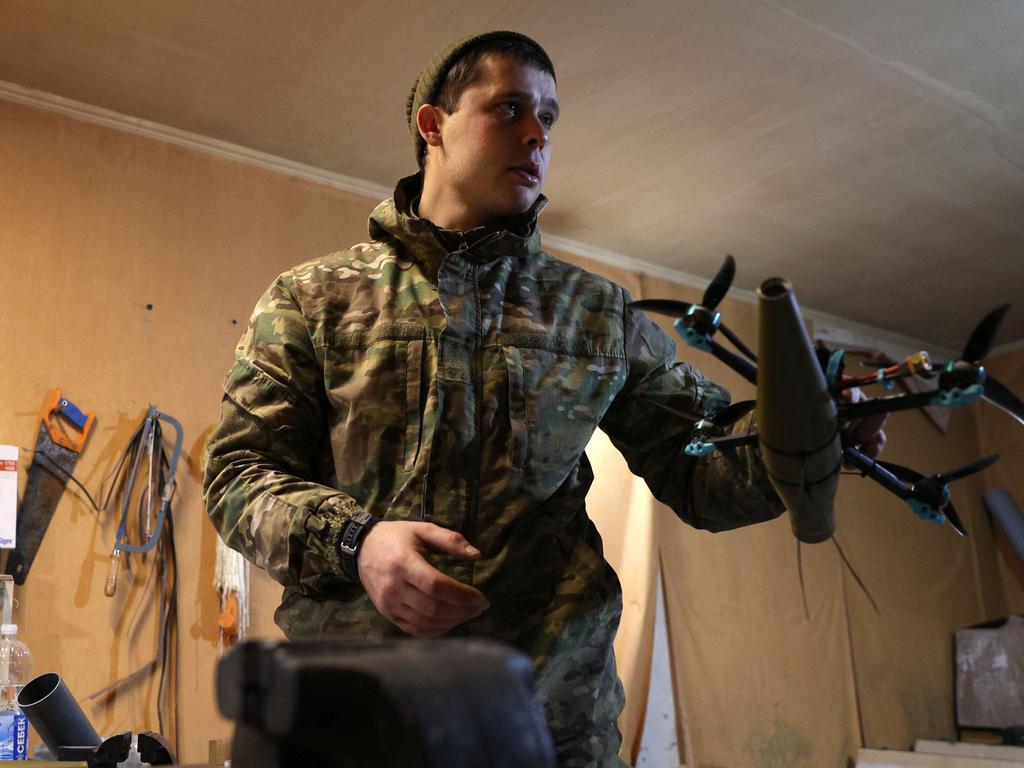
“Of course we would like them to liberate as much territory as possible, as quickly as possible, but even though the frontline has not moved, Ukrainians have been able to inflict heavy losses on the Russian invaders,” Stoltenberg said.
The assertion from the head of the Western military alliance comes after Ukraine’s top general said the conflict with Russia has ground to a “stalemate”.
“We see high casualty numbers, and some of the most intense fighting that we have seen in the whole war, have actually taken place over the last weeks and couple of months,” Stoltenberg said.
“We need to distinguish between the fact that the frontline is not moving so much, and the fact that actually there’s very heavy fighting going on.”
The NATO chief insisted that, while Ukrainian forces were not currently progressing, Kyiv had already recaptured 50 per cent of territory seized by Russia since its full-scale invasion.
“This is a big win for Ukraine,” he said.
“Meanwhile, Russia is weaker politically, economically and militarily.”
Ukraine’s failure to score a decisive breakthrough comes as doubts have emerged over the future of military support from key backer the United States.
Stoltenberg pointed to recent pledges of military assistance from Germany and the Netherlands worth 10 billion euros ($16 billion) as evidence the West’s support was not drying up.
Stoltenberg played down fears that any dwindling of weapons deliveries to Ukraine would force Kyiv to the negotiating table with Vladimir Putin before it was ready.
“It is for Ukraine to decide what are acceptable ways to end this war,” Stoltenberg said.
“Our responsibility is to support Ukraine and to enable them to liberate as much land as possible and to put them in the best possible place when or if negotiations may start.”



